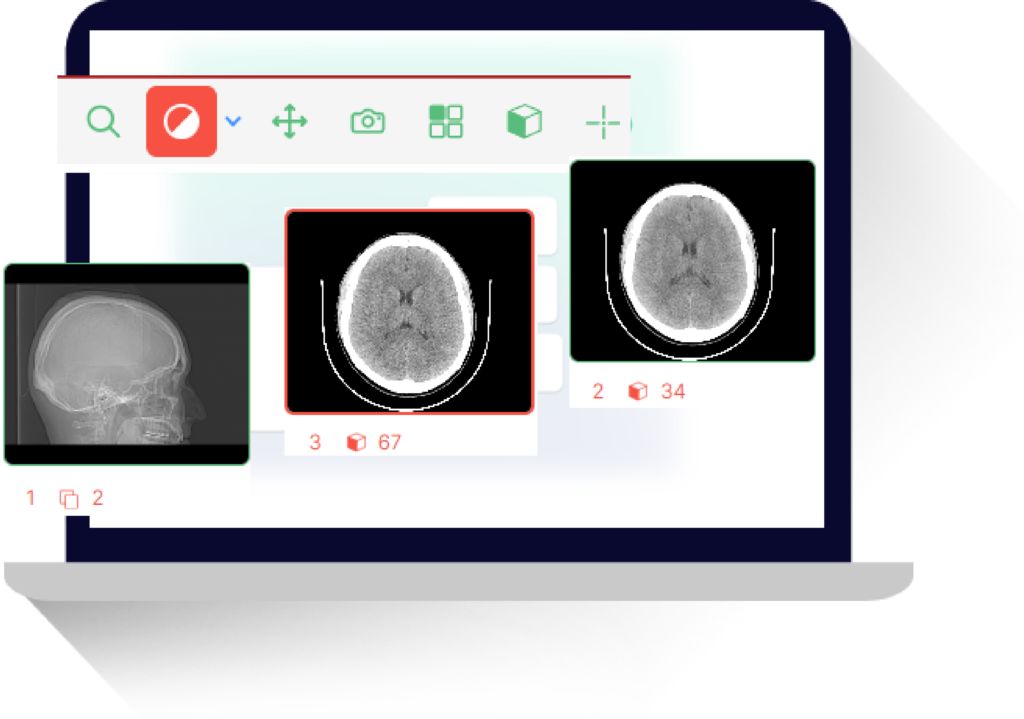The Impact of Artificial Intelligence on Radiology: Will AI Replace Radiologists?
The field of radiology has come a long way since the discovery of X-rays in 1895. With advancements in technology, radiologists have been able to diagnose and treat a wide range of medical conditions. However, the future of radiology is set to be revolutionized by the integration of artificial intelligence (AI). In this article, we will explore the potential impact of AI on radiology and address the question: can AI replace radiologists?
The Role of AI in Radiology
Artificial intelligence is the simulation of human intelligence processes by machines, especially computer systems. In radiology, AI is being used to analyze medical images and assist radiologists in making diagnoses. This technology has the potential to improve the accuracy and efficiency of radiology, ultimately leading to better patient outcomes through enhanced healthcare analytics and integrated healthcare.

Improving Accuracy and Efficiency
One of the main benefits of AI in radiology is its ability to analyze medical images with a high level of accuracy. AI algorithms can quickly and accurately detect abnormalities in medical images, reducing the risk of human error. This can be especially beneficial in cases where a radiologist may miss a small abnormality or when there is a large volume of images to analyze. These advancements support medical imaging and healthcare communication.
AI can also improve the efficiency of radiology by automating certain tasks. For example, AI can be used to triage medical images, prioritizing urgent cases for radiologists to review first. This can save valuable time and resources, allowing radiologists to focus on more complex cases. Such improvements contribute to effective care coordination and optimized clinical pathways.
Early Detection of Diseases
Early detection of diseases is crucial for successful treatment. AI has the potential to detect diseases at an early stage by analyzing medical images and identifying subtle changes that may be missed by the human eye. This can lead to earlier diagnoses and better treatment outcomes for patients, which is integral to patient management software and care coordination platforms.
Can AI Replace Radiologists?
The integration of AI in radiology has raised concerns about the future of radiologists. Will AI eventually replace radiologists altogether? The short answer is no. While AI has the potential to improve the accuracy and efficiency of radiology, it cannot replace the expertise and critical thinking skills of a trained radiologist.
AI as a Tool, Not a Replacement
AI is not meant to replace radiologists, but rather to assist them in their work. Radiologists are still needed to interpret and make decisions based on the information provided by AI. AI can help radiologists by highlighting areas of concern and providing additional information, but it cannot replace the human element of patient care.
Limitations of AI
While AI has shown great potential in analyzing medical images, it still has limitations. AI algorithms are only as good as the data they are trained on. If the data is biased or incomplete, the AI may make incorrect or incomplete diagnoses. Additionally, AI cannot take into account a patient’s medical history or other factors that may affect a diagnosis. This is where the expertise of a radiologist is crucial in making accurate diagnoses.
The Future of Radiology with AI
The integration of AI in radiology is still in its early stages, but the potential for growth and advancement is immense. Here are some ways AI is expected to impact the future of radiology.

Personalized Treatment Plans
With the help of AI, radiologists will be able to create personalized treatment plans for patients based on their medical images and other data. This can lead to more effective and targeted treatment, reducing the risk of side effects and improving patient outcomes. AI’s role in this aspect aligns with medical case management software.
Improved Workflow and Efficiency
AI has the potential to streamline the workflow of radiology departments. By automating certain tasks, radiologists can focus on more complex cases, leading to improved efficiency and faster turnaround times for patients. These efficiencies enhance healthcare document management.
Enhanced Training and Education
AI can also be used to enhance the training and education of radiologists. By analyzing large datasets of medical images, AI can identify patterns and provide insights that can be used to improve the training of radiologists. This can lead to a more skilled and knowledgeable workforce in the field of radiology.
Challenges and Considerations
While the potential benefits of AI in radiology are vast, there are also challenges and considerations that need to be addressed.
Data Privacy and Security
The use of AI in radiology raises concerns about data privacy and security. Medical images contain sensitive patient information, and it is crucial to ensure that this data is protected from unauthorized access or use. For more information on compliance, visit the Compliance Review Program.
Ethical Considerations
As with any technology, there are ethical considerations that need to be addressed when using AI in radiology. For example, who is responsible if an AI algorithm makes an incorrect diagnosis? How can we ensure that AI is not biased in its decision-making? These are important questions that need to be addressed to ensure the ethical use of AI in radiology.
Real-World Examples of AI in Radiology
Detecting Breast Cancer
In 2019, Google Health announced that they had developed an AI algorithm that could detect breast cancer with a higher level of accuracy than human radiologists. The algorithm was trained on a dataset of over 76,000 mammograms and was able to detect breast cancer with a 99% accuracy rate.
Identifying Lung Cancer
In 2020, researchers at Mount Sinai developed an AI algorithm that could identify lung cancer on CT scans with a 97% accuracy rate. The algorithm was trained on a dataset of over 12,000 CT scans and was able to detect lung cancer at an early stage, leading to improved treatment outcomes for patients.
Conclusion
The integration of AI in radiology has the potential to revolutionize the field and improve patient outcomes. While AI cannot replace the expertise of a trained radiologist, it can assist in improving accuracy and efficiency. As with any technology, there are challenges and considerations that need to be addressed, but the future of radiology with AI looks promising.




